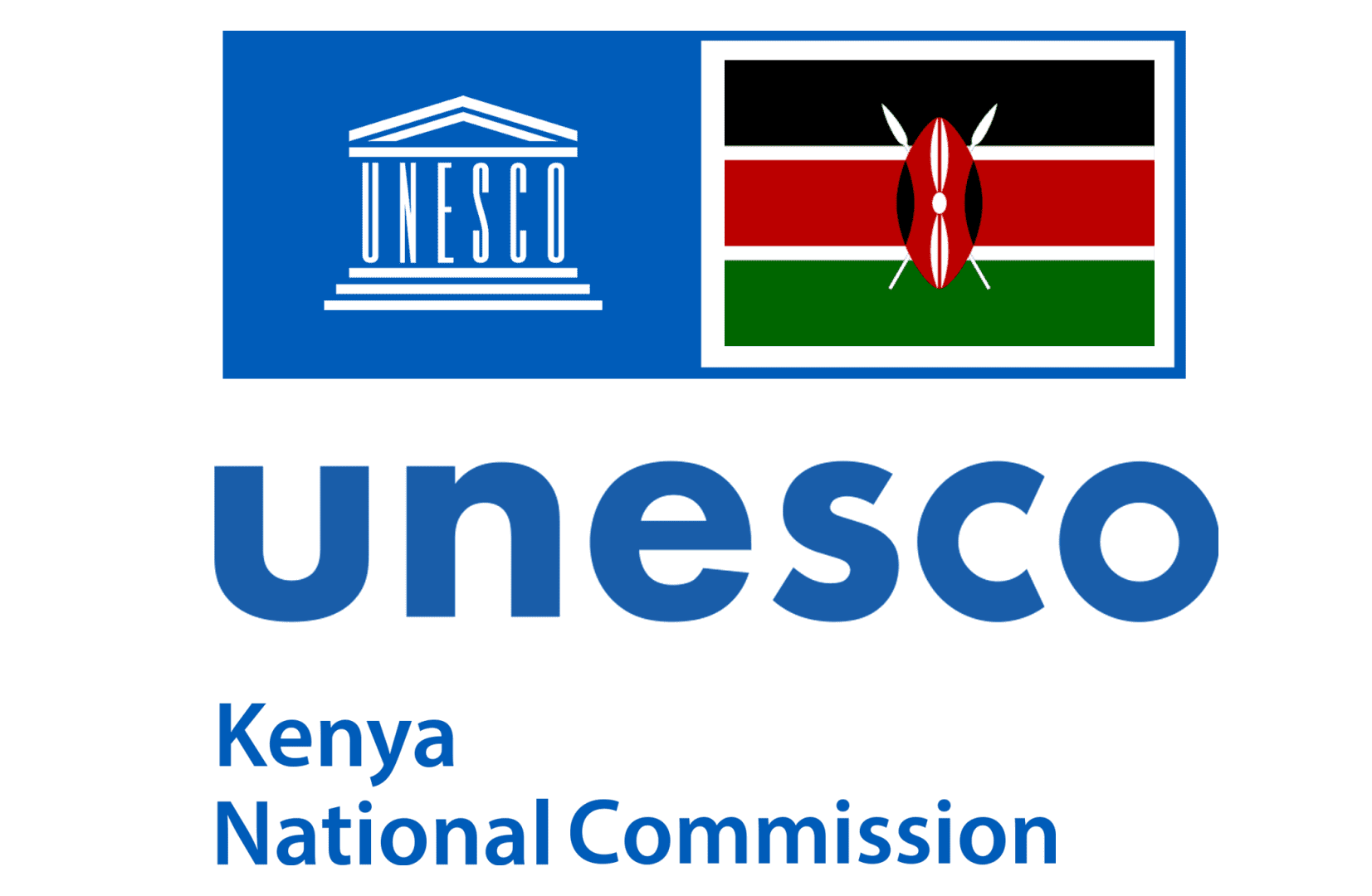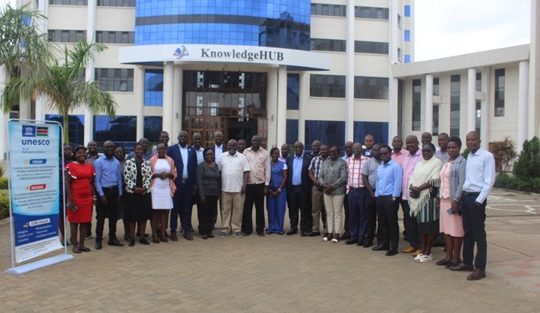Ethics Committee Members in Homa Bay County during the Capacity building workshop
The Kenya National Commission for UNESCO (KNATCOM), in collaboration with the Homa Bay County Government, is implementing a five-day intensive capacity-building workshop for members of Institutional Scientific and Ethics Review Committees (ISERCs) and Hospital Ethics Committees (HECs). The workshop, hosted at Tom Mboya University from 23rd to 27th June 2025, brings together ethics committee members from across Homa Bay County for intensive training on contemporary bioethics, clinical governance, and research integrity. This strategic initiative is part of an ongoing national commitment to uphold ethical excellence in line with global standards and emerging medical and scientific challenges. As frontline custodians of ethical compliance, ISERCs and HECs must continuously evolve to meet the demands of complex clinical scenarios, innovative research methodologies, and dynamic regulatory environments.
Bioethics committees play a critical advisory role in addressing the complex moral and ethical challenges that arise in health sciences, life sciences, and the fast-evolving fields of science, technology, and innovation (STI). In line with the UNESCO Universal Declaration on Bioethics and Human Rights (2005), these committees promote responsible decision-making grounded in respect for human dignity, human rights, and cultural diversity.
As bioethical challenges evolve alongside medical and technological advancements, continuous training and mentorship of committee members is essential. This workshop provides a platform for participants to refresh their understanding, deepen their expertise, and align their practices with both national legal frameworks and international ethical standards.
Hospital Ethics Committees (HECs) are institutional structures designed to support ethical decision-making in clinical care, particularly in situations involving legal, cultural, and moral complexities. In Kenya, there is a growing need to establish such committees due to the increasing complexity of healthcare brought about by new technologies and treatment options. These committees play a crucial role in supporting healthcare workers who face ethical dilemmas, ensuring compliance with legal and ethical standards, and fostering public trust in the healthcare system. Their core functions are:
- Case Consultations: Helping resolve challenging patient care decisions—such as end-of-life choices, consent issues, and resource allocation.
- Policy Development: Assisting hospitals in drafting and reviewing policies on ethics and patient rights.
- Education: Promoting bioethics literacy among healthcare professionals.
- Advisory Support: Providing expert guidance on ethically sensitive hospital matters, including new technologies and complex clinical cases.
Institutional Scientific and Ethics Review Committees (ISERCs) are tasked with protecting the rights, safety, and welfare of individuals participating in research. They review research protocols to ensure ethical compliance, scientific validity, and participant protection. They are also essential for NACOSTI licensing, publication, and international collaborations.
KNATCOM has long supported the establishment and development of ethics committees across Kenya, facilitating inclusive, fair, and ethically sound research and healthcare practices. The workshop will feature expert-led presentations, interactive discussions, role plays, and real-world case studies drawn from both research and hospital settings.
In conclusion, the establishment and continuous strengthening of Hospital Ethics Committees (HECs) and Institutional Scientific and Ethics Review Committees (ISERCs) are indispensable to upholding ethical standards within Kenya’s healthcare and research systems. These committees play a pivotal role in safeguarding human rights, promoting accountability, and addressing the complex ethical challenges posed by advances in medicine and science. Through sustained training, collaboration, and institutional support, Kenya is steadily advancing its commitment to bioethical integrity and reinforcing a culture of ethical responsibility across the health and research ecosystem.



